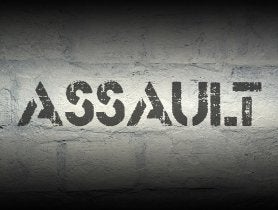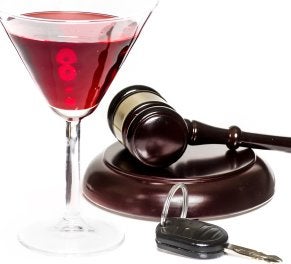-
Fighting Back Against Drug Charges
 If you have been charged with a drug crime, you may need help from a criminal lawyer who is familiar with state laws pertaining to drugs, drug paraphernalia, and distribution. Drug laws are complex, and you should consider contacting an attorney who has experience handling these kinds of cases.
If you have been charged with a drug crime, you may need help from a criminal lawyer who is familiar with state laws pertaining to drugs, drug paraphernalia, and distribution. Drug laws are complex, and you should consider contacting an attorney who has experience handling these kinds of cases. Your first step after being charged with a drug crime should be to contact a good criminal lawyer. A criminal defense attorney should have experience and a proven track record of success. An effective criminal lawyer will be someone who regularly handles common drug charges in your area, including possession, distribution or intent to distribute, and trafficking. An experienced criminal lawyer will have handled charges of drug manufacturing and marijuana cultivation, and lesser charges including possession of drug paraphernalia and prescription drug offenses. Before you hire any criminal lawyer, make sure you schedule a consultation.
When you are charged with a drug crime the penalties if you are convicted can vary greatly depending on the charges, and on any prior convictions you might have. An experienced criminal attorney can help make sure that your constitutional rights are protected throughout the process from arrest to trial. Your attorney can also be valuable in helping to determine the strengths and weaknesses of the case against you so that you can make an informed decision about exercising your right to a jury trial, taking a plea deal, or declining to testify at trial. The criminal process can be complex and you should always have an experienced local attorney on your side.
-
Proving Negligence After a Car Accident
 Many personal injury claims near Annapolis arise out of driver negligence. When a driver does not practice proper care while operating a motor vehicleâand that failure causes an accident that hurts someone elseâit is time for a personal injury lawyer to get involved.
Many personal injury claims near Annapolis arise out of driver negligence. When a driver does not practice proper care while operating a motor vehicleâand that failure causes an accident that hurts someone elseâit is time for a personal injury lawyer to get involved. If you suffer personal injury in a car accident, your attorney will investigate your case to find out if the other driver was negligent. For a successful personal injury claim, you and your personal injury lawyer need to first show that the other driver breached his duty of care. In other words, he failed to act the way a reasonable person would have in a similar circumstance. Next, your personal injury lawyer will need to prove that that failure of care caused your accident. For example, it is often true that when a driver is talking on a cell phone and hits another car, he or she has been negligent.
-
What Are the Potential Defenses Against an Assault Charge?
 Assault is a serious criminal charge, and successfully defending against an assault charge requires help from a criminal lawyer near Annapolis. Assault involves any kind of harmful or offensive contact with a person, which is defined as the threat of bodily harm. With the help of an experienced criminal defense attorney, you may be able to successfully defend yourself against an overblown assault charge. Keep reading to learn more about your options, including self-defense, defense of others, and defense of property.
Assault is a serious criminal charge, and successfully defending against an assault charge requires help from a criminal lawyer near Annapolis. Assault involves any kind of harmful or offensive contact with a person, which is defined as the threat of bodily harm. With the help of an experienced criminal defense attorney, you may be able to successfully defend yourself against an overblown assault charge. Keep reading to learn more about your options, including self-defense, defense of others, and defense of property. Self-Defense
A criminal lawyer often counsels clients to claim self-defense when someone else threatened to use force or harm against them. If a client truly believed that the other person would harm him, he is entitled to claim self-defense even if he then threatened to harm the would-be attacker. To succeed on this defense, a defendant must not have provoked the other person and cannot have felt free to simply walk away from the situation
Defense of Others
Self-defense is not the only potential defense that can be claimed in regards to an assault charge. Criminal lawyers also put on defense of others claims when clients are forced to threaten another person who is threatening someone else. The defense of others claim is similar to self-defense, except your criminal defense attorney will need to show that you genuinely feared someone else would harm the person you were trying to protect. Additionally, you must have had reasonable grounds for that fear.
Defense of Property
A defendant who has been charged with assault and battery may be able to claim that he acted to protect his property from being illegally withheld or to protect it. As criminal lawyers know, laws in each state vary, so it is important to tell your attorney exactly what happened. However, many states allow individuals to defend their homes against intruders and trespassers. Additionally, some states permit victims of purse snatching or pickpocketing to threaten force to retrieve their stolen possessions.
-
Defining Self-Defense
Law firms in Annapolis advise their clients that everyone has the right to defend him or herself. However, a criminal lawyer will also warn clients that there are limitations to this right. You can learn more by watching this video.
Criminal lawyers often plead self-defense on behalf of their clients, but most people do not fully understand what this means. If someone claims self-defense, he or she must have felt a threat of imminent harm. Additionally, their criminal lawyer must prove that the defendant did not use any more force than was necessary to dispel the threat. However, self-defense and defense of others are often highly successful claims, and many people avoid jail time and convictions by showing that they were defending themselves.
-
Exploring Common Causes of Car Accidents
 As a personal injury lawyer serving Annapolis knows all too well, there are many causes of car accidents . When a car accident results in significant property damage or personal injury, you should speak to an accident lawyer. Law firms that specialize in this complex area of law can review the facts of your case to determine if you have a personal injury claim. Read on to find out more about what causes of car accidents can lead to successful personal injury claims.
As a personal injury lawyer serving Annapolis knows all too well, there are many causes of car accidents . When a car accident results in significant property damage or personal injury, you should speak to an accident lawyer. Law firms that specialize in this complex area of law can review the facts of your case to determine if you have a personal injury claim. Read on to find out more about what causes of car accidents can lead to successful personal injury claims. Distracted Driving
In personal injury law, distracted driving is a general term for drivers who are not completely focused on the road. This lack of focus is because they are dedicating their attention to another activity, like using a cell phone, changing the radio station, talking to passengers in the car, or eating and drinking. Sadly, personal injury law firms often take cases from victims who have been hurt by distracted drivers. Many states have now banned texting or talking on the phone while driving in an attempt to cut down on these types of personal injury claims.
Dangerous Speeding
Cars that speed are often stopped for traffic violations. When they are not stopped for traffic violations, car accidents can result. According to the Centers for Disease Control and Prevention, teenage drivers are most likely to speed, and young men are especially prone to this reckless behavior. Speeding drivers are often inexperienced and unable to react in time to a sudden change in road conditions. For that reason, speeding can result in serious collisions and serious injuries. If a speeding driver caused an accident where you were injured, you may have a personal injury claim against that driver.
Severe Fatigue
Most people know that driver exhaustion is a major problem in commercial truck accidents, as truck drivers may be forced to drive overnight without breaks. Unfortunately, fatigue is just as much of a problem in passenger car accidents. When people drive without enough sleep, their reaction time and ability to pay attention both decrease substantially. Drivers who are unfocused can cause accidents that have serious consequences, potentially leading to personal injury claims among other legal actions.
-
What Are the Penalties for Possession of Drug Paraphernalia in Maryland?
 Most people mistakenly believe that being charged with possession of drug paraphernalia is a minor crime. But as any criminal lawyer knows, this is a serious criminal charge, and you need an experienced drug lawyer in Annapolis to avoid a lifelong criminal record and help to protect your rights.
Most people mistakenly believe that being charged with possession of drug paraphernalia is a minor crime. But as any criminal lawyer knows, this is a serious criminal charge, and you need an experienced drug lawyer in Annapolis to avoid a lifelong criminal record and help to protect your rights. If you are charged with possession of drug paraphernalia, never plead guilty before talking to a criminal lawyer. Reputable criminal defense firms are familiar with state drug laws and can work with prosecutors to get charges dismissed or reduced. Without a criminal defense attorney, a conviction for possession of paraphernalia can earn you a fine up $500, and worse, a permanent criminal record. If you are a subsequent offender or have been previously convicted of certain similar crimes, you face up to a $2,000 fine and two years in prison. With the help of a criminal defense attorney, you may be able argue that the evidence against you is inadmissible because police did not have a legitimate right to search you, your home, or your car. Talk to an experienced criminal lawyer to find out more about how you can defend against drug paraphernalia charges.
-
What to Expect if You Are Arrested
 Law firms in Annapolis and Anne Arundel County often field calls from people who have been arrested and are unsure of their rights. If you or a loved one has been arrested, it is important to contact a criminal lawyer as soon as possible. A criminal lawyer will ensure that your rights are not violated and will make note of any instances of police aggression or an improper arrest. Continue reading to learn more about what will happen immediately after an arrest.
Law firms in Annapolis and Anne Arundel County often field calls from people who have been arrested and are unsure of their rights. If you or a loved one has been arrested, it is important to contact a criminal lawyer as soon as possible. A criminal lawyer will ensure that your rights are not violated and will make note of any instances of police aggression or an improper arrest. Continue reading to learn more about what will happen immediately after an arrest. Initial Booking
After you are arrested, you have the right to call a criminal defense attorney and call a friend or family member to arrange for bail. You are then booked into jail, where you must provide the police with basic information about yourself, including your address and birthdate. At this point you are fingerprinted and photographed. The police will also take any personal property or money you have on you, which you will be able to collect after you post bail.
Filing Charges
After you are booked, a police officer will deliver the facts about your arrest to a prosecutor. The prosecutor will decide whether or not to press criminal charges, which usually must be filed within 72 hours of an arrest. A prosecutor is not bound by the initial charging decision and can change the charge or add on additional charges once more evidence becomes available. It is essential to speak to a criminal attorney at this point so your lawyer can help you decide how to plead.
Posting Bail
Whether you plead not guilty or guilty, after getting advice from your criminal lawyer, the next step is to post bail. Bail may be denied in the case of very serious criminal charges, but a good criminal defense attorney can generally negotiate the lowest bail possible. Bail secures your release from jail until your trial date. A judge will set a dollar amount or release you on your own recognizance, which means that you do not have to pay but are obligated by law to appear at your next hearing. Once you are released pending your next court date your attorney will begin the process of preparing your case with you.
-
What Are Your Miranda Rights?
As a criminal lawyer near Annapolis will explain, Miranda rights must be read to any criminal suspect in custody. If a police officer fails to advise you of your rights when you are arrested or placed in custody, your criminal lawyer may be able to have the case against you completely dismissed.
Miranda rights include the right to remain silent and to know that anything you say can and will be held against you in court. A police officer must also advise a criminal suspect of his right to speak to a criminal defense attorney. Finally, a police officer must inform a suspect that if he cannot afford a criminal attorney, one will be provided to him at no cost. The Miranda rights, named after the 1964 Supreme Court case that gave rise to them, are required because they provide vital information to suspects about their constitutional rights, so that they can make an informed decision about what to do when they are arrested. Courts take the rights very seriously and if you are arrested or placed in custody you must be made aware of these rights, or the State risks not being able to use evidence that they have collected against you, including your own statements.
-
A Look at Maryland’s Aggravated DUI Law
 Being charged with a DUI or DWI in Maryland is a serious offense, and you need help from a criminal lawyer near Annapolis. A DUI lawyer can make sure your legal rights are protected throughout the process. A criminal lawyer is also well-versed in state law and is often able to negotiate a plea deal with a prosecutor so you can avoid jail time. An aggravated DUI is an even more serious charge. Keep reading to find out why an aggravated DUI may be issued, the potential penalties you face, and how a conviction could harm your future.
Being charged with a DUI or DWI in Maryland is a serious offense, and you need help from a criminal lawyer near Annapolis. A DUI lawyer can make sure your legal rights are protected throughout the process. A criminal lawyer is also well-versed in state law and is often able to negotiate a plea deal with a prosecutor so you can avoid jail time. An aggravated DUI is an even more serious charge. Keep reading to find out why an aggravated DUI may be issued, the potential penalties you face, and how a conviction could harm your future. Reckless Behavior
An aggravated DUI is usually issued if law enforcement officials believe a Maryland driver has engaged in extremely reckless behavior. For example, aggravated DUIs are commonly charged if a drunk driver has an excessive amount of alcohol in their system, is transporting a minor, or causes a serious accident. An aggravated DUI can also be charged if you are a repeat offender, meaning you have a history of driving drunk.
Serious Penalties
With the heightened criminal charge come even stiffer penalties than normally accompany a DUI. If you are convicted, your aggravated DUI sentence may include a minimum six-month license suspension, a $500 to $1,000 fine, and up to a one-year jail sentence. On top of that, a judge can order you to undergo counseling or alcoholism treatment. Finally, you may have to have a device installed in your car that requires a breath test before you can start the ignition.
Lasting Consequences
An aggravated DUI conviction can have even more long-term consequences than jail time. If you do not consult a criminal defense attorney and are convicted of an aggravated DUI, you can expect your insurance rates to skyrocket. Even worse, you will have a lasting criminal record, which can make it difficult to find a job or secure housing. Unfortunately, once you have a DUI conviction on your record, it is almost impossible to have it removed. It is essential to hire a criminal lawyer as soon as you have been charged so that they can help you protect your rights and get the best possible outcome from your DUI.
-
What Is an MVA Hearing?
 If you have been charged with DUI or DWI, you should discuss your charges with a DUI attorney in Annapolis as soon as possible. While a criminal charge is usually the result of being suspected of driving drunk, some drivers simply refuse to take a chemical (breathalyzer) test altogether. If you refuse to take a test verifying your blood alcohol or drug concentration, or if you elect to take the test and fail it, the police officer will confiscate your driverâs license. You then have the right to request a hearing with the Maryland Motor Vehicle Administration, or MVA. You must request a hearing within 10 days of your DUI or DWI stop. It is important to read and understand all of the paperwork that you are given during and after your DUI or DWI stop. During the MVA hearing, an Administrative Law Judge will decide whether to suspend your license. You should make sure to bring an experienced criminal defense lawyer who regularly handles DUI cases so that your rights are protected while you stand before the judge.
If you have been charged with DUI or DWI, you should discuss your charges with a DUI attorney in Annapolis as soon as possible. While a criminal charge is usually the result of being suspected of driving drunk, some drivers simply refuse to take a chemical (breathalyzer) test altogether. If you refuse to take a test verifying your blood alcohol or drug concentration, or if you elect to take the test and fail it, the police officer will confiscate your driverâs license. You then have the right to request a hearing with the Maryland Motor Vehicle Administration, or MVA. You must request a hearing within 10 days of your DUI or DWI stop. It is important to read and understand all of the paperwork that you are given during and after your DUI or DWI stop. During the MVA hearing, an Administrative Law Judge will decide whether to suspend your license. You should make sure to bring an experienced criminal defense lawyer who regularly handles DUI cases so that your rights are protected while you stand before the judge.
